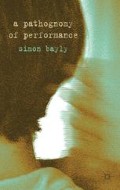Abstract
What is an experiment without a little explosion?
Access this chapter
Tax calculation will be finalised at checkout
Purchases are for personal use only
Preview
Unable to display preview. Download preview PDF.
Notes
Herbert Blau, The Audience, Baltimore, MD: Johns Hopkins University Press, 1990, p. 40.
See Immanuel Kant, ‘On a Newly Arisen Superior Tone in Philosophy’, in Peter Fenves, ed. and trans., Raising the Tone of Philosophy: Late Essays by Immanuel Kant, Transformative Critique by Jacques Derrida, Baltimore, MD: Johns Hopkins University Press, 1993, pp. 51–81; Maurice Blanchot, The Writing of the Disaster, trans. Ann Smock, Lincoln: University of Nebraska Press, 1986.
John Caputo, Against Ethics: Contributions to a Poetics of Obligation With Constant Reference to Deconstruction, Bloomington: Indiana University Press, 1993, pp. 27–8.
‘Bologna’, Oxford English Dictionary, J. A. Simpson and E. S. Weiner, eds, 2nd edn, Oxford: Clarendon Press, 1989.
This particular theme and related theatrical phenomena receive excellent treatment in Nicholas Ridout’s Stage Fright, Animals and Other Theatrical Problems (Cambridge: Cambridge University Press, 2006), perhaps a kind of ‘companion’ text to this one, but whose more timely publication arrived some years after this chapter was completed and which I have — hopefully wisely — not attempted to retrospectively supersede. Ridout’s concerns are very much with the stage and various breakdowns and suspensions of its mimetic machinery, sustained by the kind of focus and commitment to the theatre that I have found entirely impossible.
See Theodor Adorno, Aesthetic Theory, trans. C. Lenhardt, London: Routledge & Kegan Paul, 1986; and, for a more recent evocation, Esther Leslie, ‘Shudder-Shutter-Shatter’, Animate Projects, http://www.animateprojects.org/writing/essays/e_leslie_2, 2009.
Freidrich Nietzsche, Thus Spake Zarathustra, in The Portable Nietzsche, trans. and ed. Walter Kaufmann, New York: Viking, 1954, pp. 131–2.
Ibid., p. 127.
Tim Etchells, Certain Fragments: Contemporary Performance and Forced Entertainment, London: Routledge, 1999, pp. 64–5.
I have explored the ethics and politics of spectatorship and passivity elsewhere (Simon Bayly, ‘Theatre and Public: Badiou, Ranciere, Virno’, Radical Philosophy, 157, 2009, pp. 20–9).
Peter Handke, Offending the Audience/Self-Accusation, trans. Michael Roloff, London: Methuen, 1971.
Stanley Cavell, ‘King Lear: The Avoidance of Love’, in The Cavell Reader, Cambridge, MA: Blackwell, 1996, p. 154.
Ibid., p. 150.
Bert O. States, Great Reckonings in Little Rooms: On the Phenomenology of Theater. Berkley, CA, and London: University of California Press, 1985, p. 117.
Ibid., p. 119.
Ibid.
Ibid.
John McKenzie, Perform of Else: From Discipline to Performance, London and New York: Routledge, 2001.
Copyright information
© 2011 Simon Bayly
About this chapter
Cite this chapter
Bayly, S. (2011). Points of Suspension. In: A Pathognomy of Performance. Palgrave Macmillan, London. https://doi.org/10.1057/9780230306936_3
Download citation
DOI: https://doi.org/10.1057/9780230306936_3
Publisher Name: Palgrave Macmillan, London
Print ISBN: 978-1-349-32277-0
Online ISBN: 978-0-230-30693-6
eBook Packages: Palgrave Theatre & Performance CollectionLiterature, Cultural and Media Studies (R0)

